The Ultimate Guide to Choosing the Perfect Spikes for Your Shoes
When it comes to enhancing your golf game, one of the most overlooked aspects is the choice of golf spikes for shoes. The right spikes can significantly improve your grip, stability, and overall performance on the course. This guide will delve into the various types of spikes available, their benefits, and how to choose the perfect ones for your specific needs.
Understanding the Importance of Golf Spikes
Golf spikes are not just a minor detail; they are a critical component that directly impacts your ability to play effectively. According to the United States Golf Association (USGA), the design and material of golf spikes can influence the player’s traction and stability, which are essential for maintaining balance and control during swings. The legendary golfer Jack Nicklaus once said, “A good grip is half the battle in golf,” and this applies not just to your club but also to your shoes.
The primary function of golf spikes for shoes is to provide a firm grip on the turf, preventing slippage during your swing. This is particularly important on wet or uneven surfaces, where poor traction can lead to injuries or a loss of confidence. As noted by the PGA Tour, many professional golfers attribute their consistent performance to the quality and type of spikes they use.
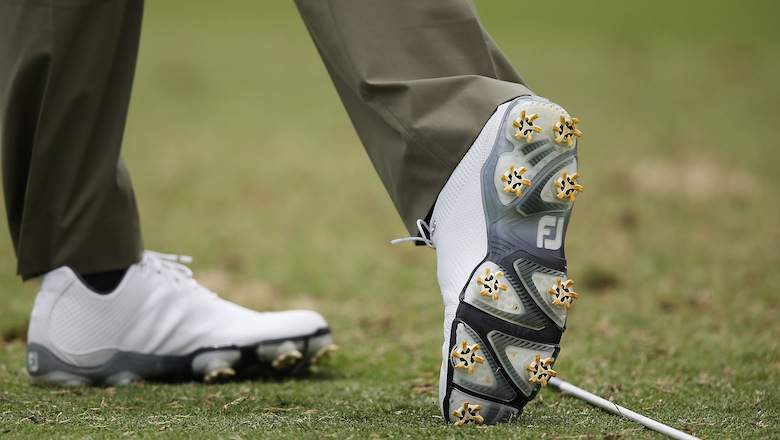
Types of Golf Spikes
There are primarily two types of golf spikes: metal spikes and plastic (or soft) spikes. Each type has its own set of advantages and disadvantages, and the choice between them often comes down to personal preference and the specific conditions of the golf course.
Metal Spikes
Metal spikes have been the traditional choice for many years. They are known for their durability and superior grip, making them ideal for players who need maximum traction. However, metal spikes can damage the greens and are often prohibited on certain courses. As stated by the R&A, the governing body for golf outside the United States and Mexico, the use of metal spikes on putting greens can cause significant damage, leading to slower greens and increased maintenance costs.
Despite their drawbacks, many professional golfers still prefer metal spikes for their performance benefits. As Tiger Woods once mentioned in an interview, “I need every advantage I can get, and metal spikes give me that extra bit of confidence on the course.”
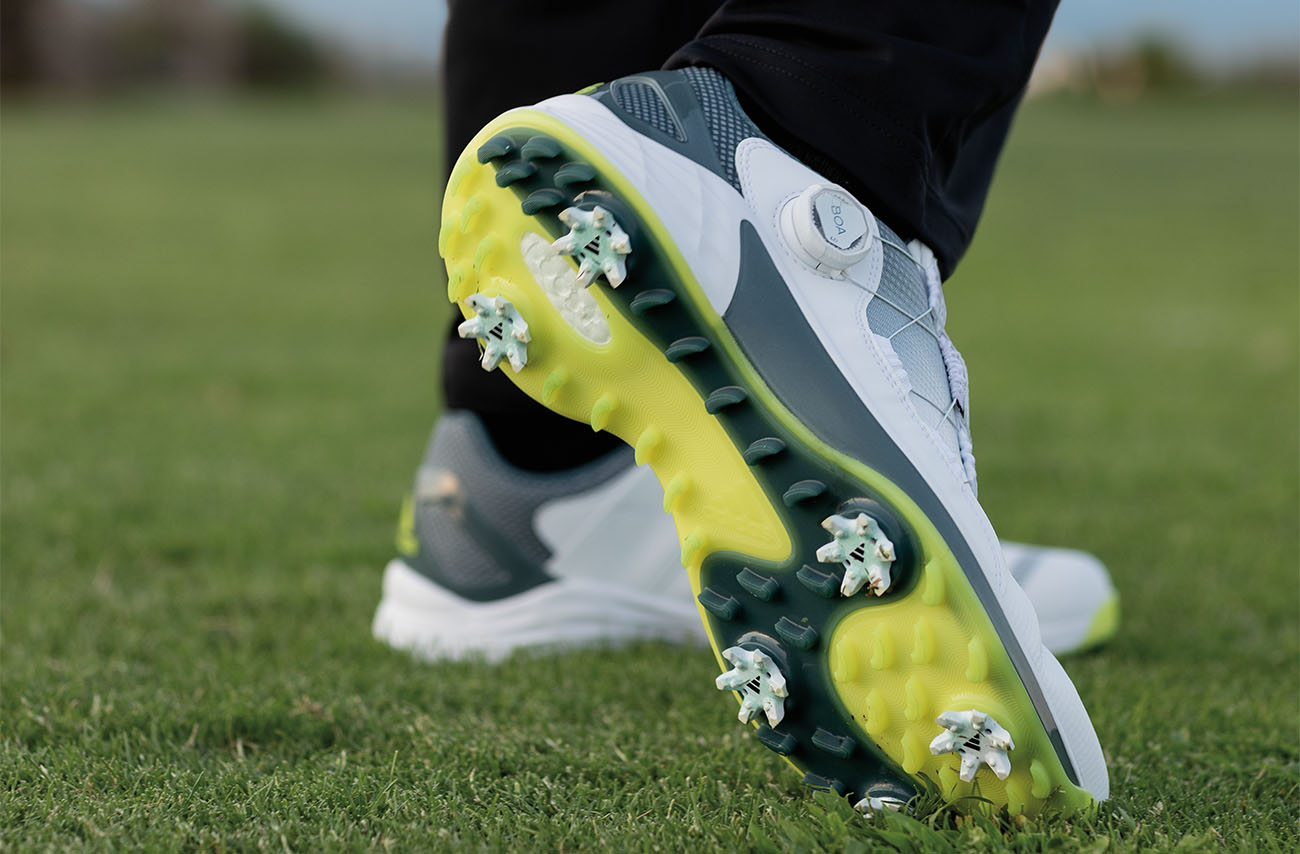
Plastic (Soft) Spikes
Plastic or soft spikes have gained popularity in recent years due to their versatility and eco-friendliness. Unlike metal spikes, soft spikes are designed to be gentle on the greens, making them a preferred choice for courses that enforce spike policies. According to a study by the University of St. Andrews, soft spikes cause less damage to the turf, which can lead to healthier greens and a more enjoyable playing experience for all golfers.
Soft spikes are also more comfortable and quieter, which can be a significant advantage for players who value a more relaxed and peaceful game. As Phil Mickelson noted in his book “Golf Is Not a Game of Perfect,” “Comfort and confidence go hand in hand, and soft spikes provide both.”
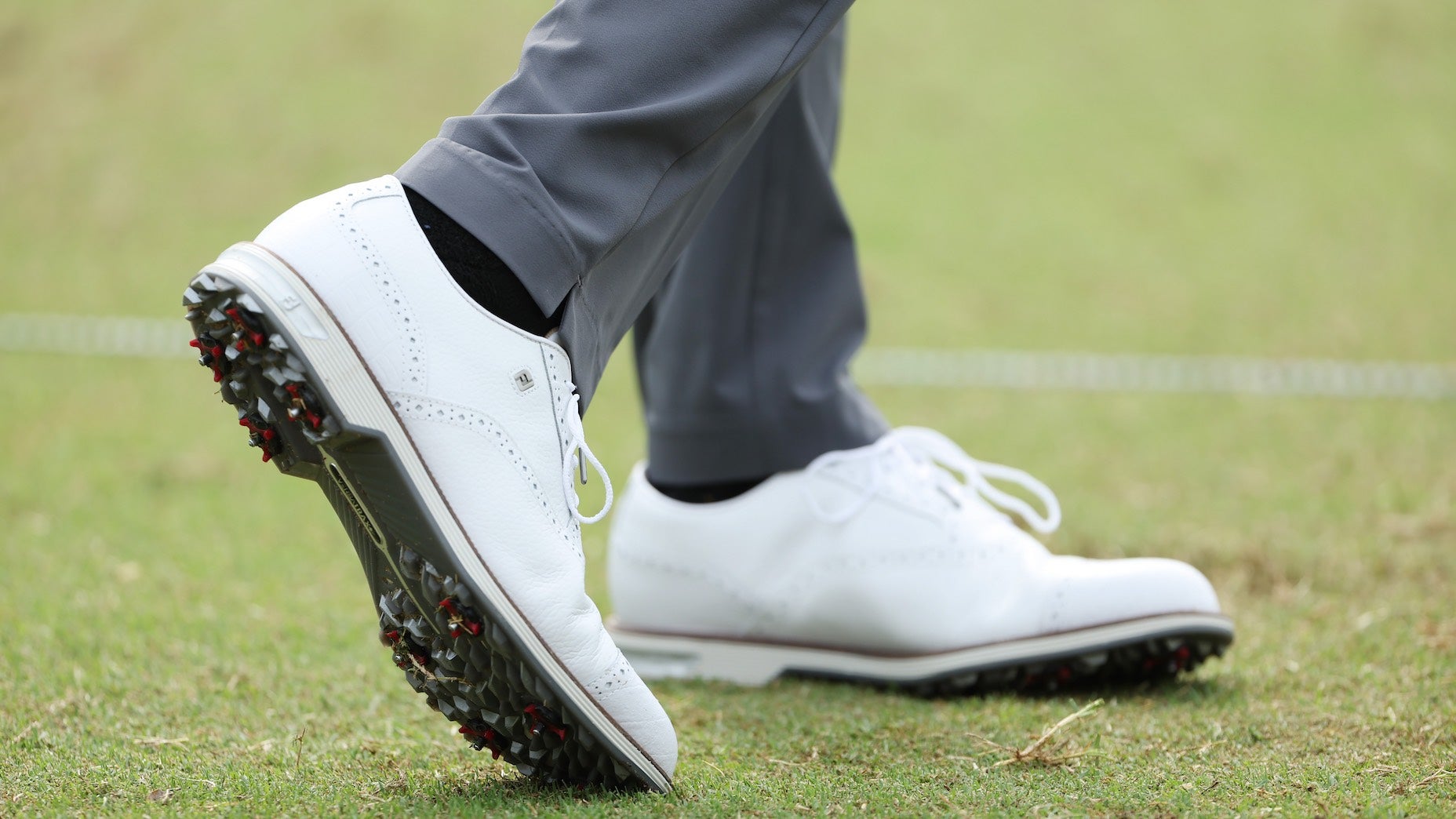
Choosing the Right Golf Spikes for Your Shoes
Selecting the right golf spikes for shoes involves considering several factors, including the type of course you play on, your playing style, and personal comfort. Here are some key points to keep in mind:
Course Conditions
The conditions of the golf course play a crucial role in determining the type of spikes you should use. For courses with firm, dry turf, metal spikes may offer the best performance. However, for courses with softer, wetter conditions, soft spikes are often the better choice. As recommended by the Golf Course Superintendents Association of America (GCSAA), understanding the course conditions and selecting the appropriate spikes can help maintain the quality of the greens and ensure a fair playing surface for all golfers.
Playing Style
Your playing style is another important factor to consider. Aggressive players who make quick, powerful swings may benefit from the extra grip provided by metal spikes. On the other hand, players who prefer a more controlled, precise swing might find soft spikes more suitable. As noted by renowned golf coach Butch Harmon, “The right spikes can make a world of difference in your game, so choose wisely based on your style.”
Personal Comfort
Comfort should never be overlooked when choosing golf spikes for shoes. The right spikes should feel secure and supportive, allowing you to focus on your game without worrying about your footing. Many golfers find that soft spikes offer a more comfortable experience, especially during long rounds. As discussed on the PGA Tour website, comfort is a key factor in maintaining endurance and consistency throughout a game.
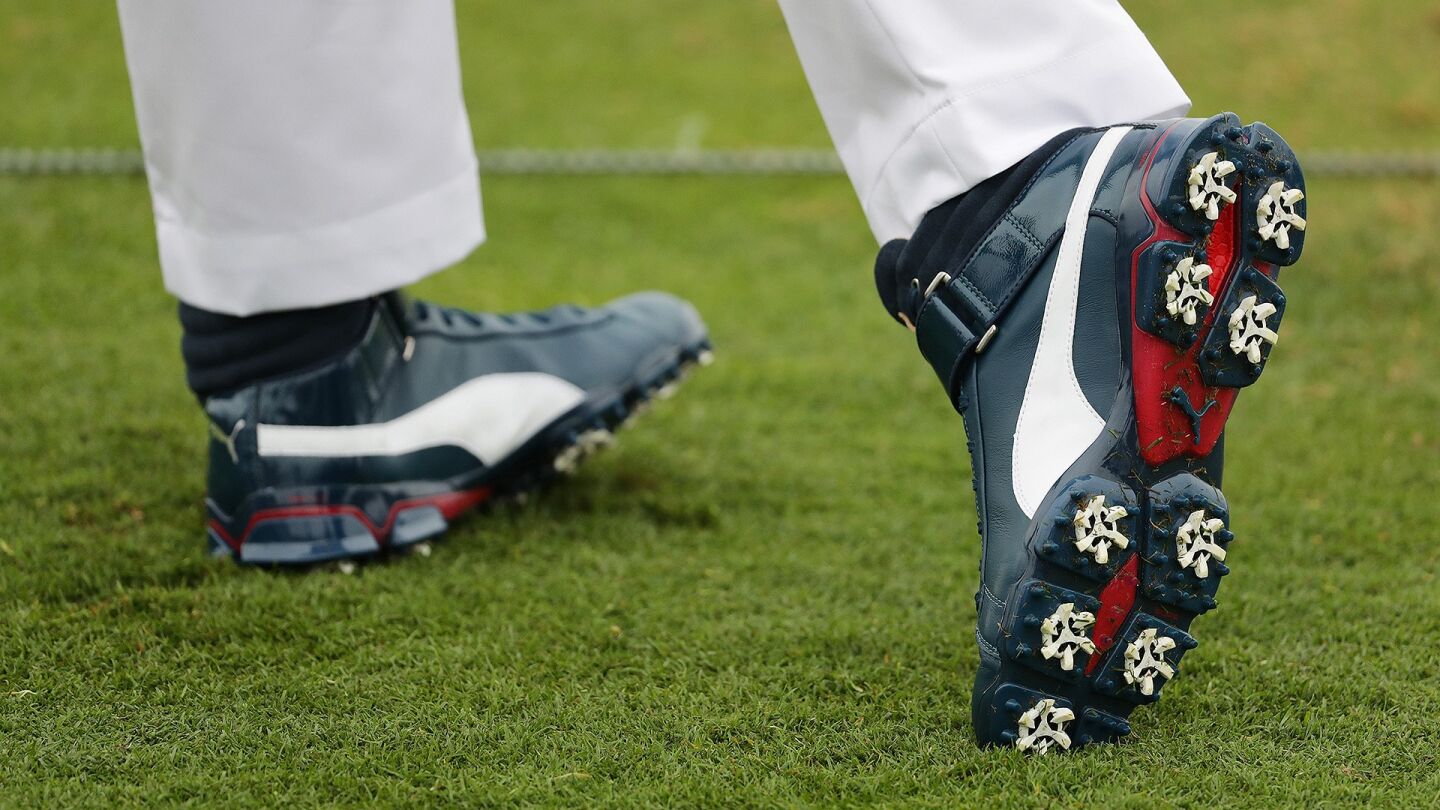
Maintenance and Care for Golf Spikes
Proper maintenance and care are essential for ensuring that your golf spikes for shoes remain effective and durable. Here are some tips to keep your spikes in top condition:
Regular Cleaning
After each round of golf, it’s important to clean your spikes to remove dirt and debris. This can be done by brushing the spikes with a soft brush or using a cleaning solution specifically designed for golf shoes. As advised by the USGA, regular cleaning helps maintain the performance of the spikes and extends their lifespan.
Inspect for Wear and Tear
Regularly inspect your spikes for signs of wear and tear, such as dullness or damage. Worn-out spikes can compromise your grip and stability, so it’s important to replace them as needed. According to a study by the University of Oxford, worn-out spikes can reduce traction by up to 30%, which can have a significant impact on your game.
Store Properly
When not in use, store your golf shoes in a cool, dry place to prevent damage from moisture and extreme temperatures. Proper storage can help maintain the integrity of the spikes and ensure they remain effective for future use.
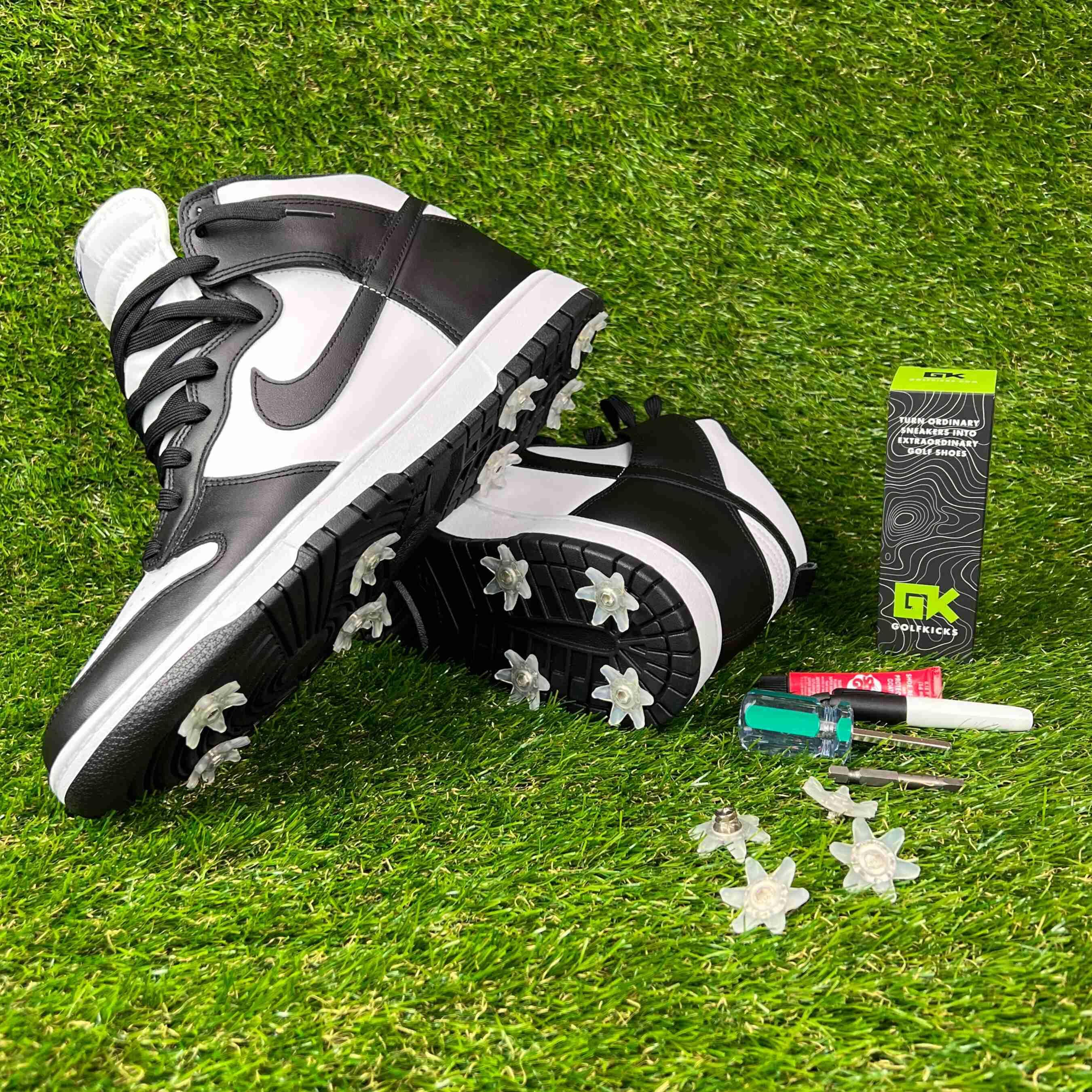
Conclusion
Choosing the perfect golf spikes for shoes is a decision that can significantly impact your performance on the course. By understanding the different types of spikes, considering the course conditions, and prioritizing comfort and maintenance, you can make an informed choice that enhances your game. Remember, the right spikes can provide the traction and stability you need to play your best, so take the time to select the ones that suit your needs.
Whether you prefer the durability of metal spikes or the comfort of soft spikes, the key is to find a balance that works for you. As the famous golfer Arnold Palmer once said, “The more I practice, the luckier I get,” and having the right spikes can certainly contribute to your practice and performance.
